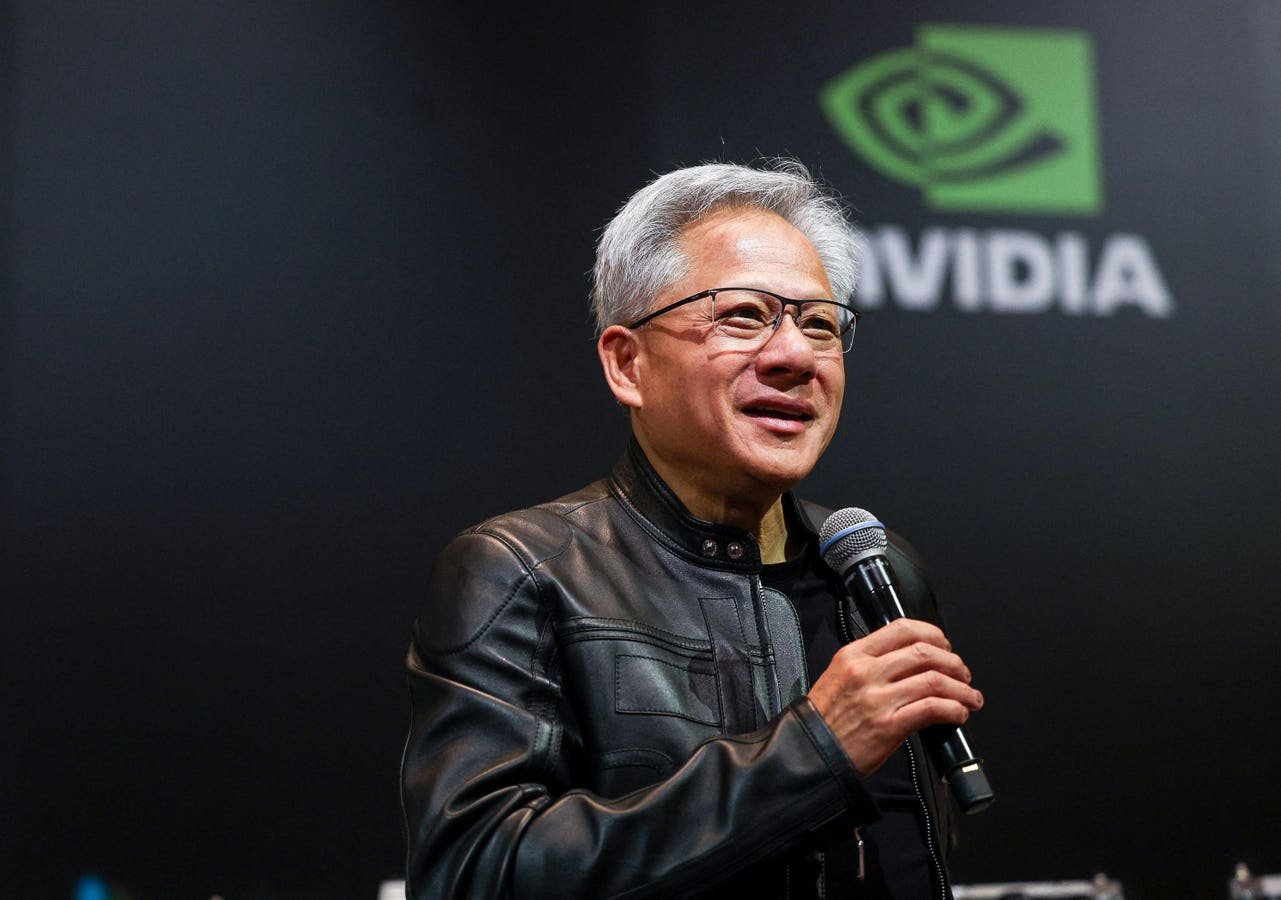Jensen Huang and Dario Amodei’s warning about AI.
One predicts AI will put 40 million people back to work. The other warns it could drive mass unemployment. Nvidia’s Jensen Huang and Anthropic’s Dario Amodei, despite their contrasting tones, are both broadcasting the same underlying truth: evolve or risk becoming obsolete.
Whether it’s reshaping industries, redefining roles, or redrawing the line between relevance and redundancy, AI is here in full force. For leaders, the question isn’t whether AI will change everything. It’s whether you’re willing to change yourself fast enough to stay afloat. This realization of AI is what makes Huang’s and Amodei’s recent comments so critical. Not because they agree on the outcomes but because they’re waving the same flag: radical adaptability isn’t optional anymore.
Two Leaders With One Message: Change Or Get Left Behind
At the recent Milken Conference, Nvidia’s Jensen Huang didn’t sugarcoat the potential impact of AI. “Every job will be affected, and immediately,” he warned. But Huang wasn’t forecasting dystopia; he was emphasizing opportunity. In his view, AI can close global talent gaps, increase the GDP, and level the playing field. However, this only happens if people commit to learning and fully embracing artificial intelligence. “You’re not going to lose your job to AI,” he said. “You’re going to lose your job to someone who uses AI.”
Anthropic CEO Dario Amodei, by contrast, is raising the alarm. In recent interviews, he has been straightforward: AI is improving at nearly all intellectual tasks, even those typically performed by CEOs. In a discussion with Axios, he predicted that up to 50% of entry-level white-collar jobs could vanish within five years. He put it this way: “Cancer is cured, the economy grows at 10% a year, the budget is balanced—and 20% of people don’t have jobs.”
These aren’t opposing views. They’re parallel warnings. Both point to the same truth: the cost of ignoring AI is compounding, particularly for those in leadership positions.
Radical Adaptability: Your Competitive Edge
No matter which prediction you believe, the path forward is the same. Radical adaptability is no longer a nice to have. It’s the currency of continued relevance that gives you the best chance of staying ahead. It’s about rewiring how you lead, think, and operate at the speed of disruption. In this new reality, clinging to stability is akin to a slow-motion decline. Here are two principles to begin practicing radical adaptability:
Practice Healthy Paranoia
Intel founder Andy Grove once wrote, “Only the paranoid survive.” That mindset isn’t about fear—it’s about foresightedness. Huang echoes this sentiment: no role is immune from AI’s reach, and machines won’t overtake those who delay adapting—they’ll be outpaced by those who have already learned to use them. Amodei also points to this blind spot, warning that most people—and many leaders—still don’t realize how fast things are moving. That kind of lag in awareness is where disruption thrives.
Practicing healthy paranoia means scanning for cracks before they break open. It’s asking difficult questions before the market forces you to. It’s not just designing a strategy for what could succeed—but instead for what could make today’s model obsolete. Build before it’s obvious. In the age of AI, staying a little paranoid might be your strongest competitive edge.
Embrace Continuous Reinvention
According to the 2025 World Economic Forum’s “Future of Jobs” Report, 41% of companies plan to downsize due to the impact of AI; however, 77% plan to reskill or upskill their employees. It’s never been more obvious: what got you here won’t keep you here. Amodei’s warning about AI’s acceleration on intellectual tasks shows that static expertise now has a short shelf life. Leaders who thrive will treat reinvention not as a pivot—but as a permanent operating system.
That means evolving your digital fluency and skills, rethinking communication styles, and being willing to redefine what leadership looks like in a more machine-augmented world.
AI Will Challenge Leaders’ Egos
Whether AI becomes a net benefit or net threat will be debated for years. But as both Huang and Amodei stress, this isn’t something you can ignore. And for those in leadership, AI won’t just test your strategy. It will test your identity. This scenario is where your ego comes into play. Leaders who are rigid in how they see themselves, their roles, or their industry will fall behind. The future won’t belong to the biggest or the smartest. It’ll belong to the most adaptable.











